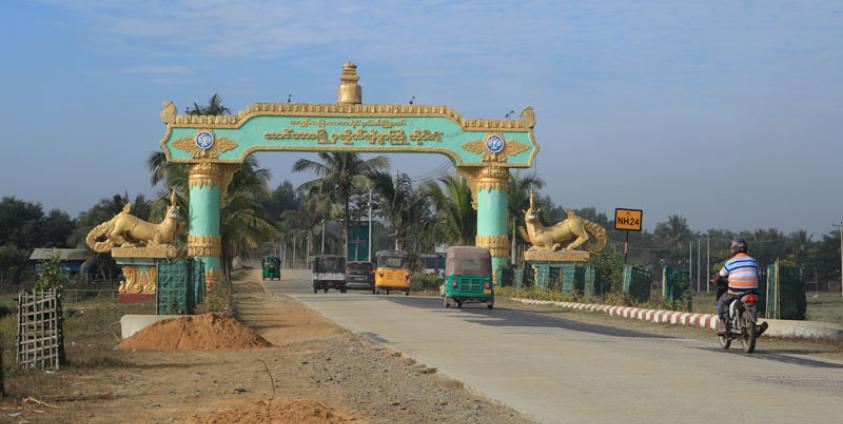Since March of this year, the Military Council restricted assistance provided by the World Food Programme (WFP) to approximately ten thousand people residing in the northern part of Maungdaw Township in Rakhine State.
"Since March of this year, we continue to confront the obstacle of being unable to visit 10,000 individuals in northern Maungdaw Township to deliver much-needed aid," stated the WFP in response to DMG's e-mail inquiry. However the WFP has refrained from providing a detailed response regarding this specific issue.
According to the WFP, the United Nations is engaged in negotiations with the relevant officials to seek permission for the resumption of humanitarian aid and the return of their assistance in the affected area. The World Food Programme (WFP) used to supply monthly provisions of essential consumer goods, including food, to approximately 100,000 refugees residing in northern Rakhine State.
"Aid assistance abruptly ceased without any prior notification from WFP. For over four months, we have not received any form of aid. Given the scarcity of employment opportunities, we are grappling with immense hardships to sustain our livelihoods," expressed U Maung Thar, a resident of Gyate Chaung village.
Due to the restrictions imposed by the Military Council, the World Food Programme (WFP) has ceased its monthly provision of food items, such as rice, oil, salt, and sugar, to the population of approximately 10,000 people residing in 24 villages including
Gyate Chaung, Mya Wa Di, Khon Taing, Thet Kaing Nyar, and Ta Man Thar in the northern part of Maungdaw Township.
The WFP and other UN agencies based in Yangon have been widely criticized for their lack of push-back to the Junta’s blocking of food aid. and denial of access for humanitarian aid even in the midst of natural disasters like the recent Cyclone Mocha.
There are approximately 10 Military Council border checkpoints along the road in the northern part of Maungdaw Township. According to residents, these checkpoints impose strict checks, which significantly limit their freedom of movement, preventing them from traveling freely in the area. Being a border area, Maungdaw Township experiences higher prices for basic food and commodities compared to other townships.
Residents have reported that the Military Council's restriction of aid provided by the World Food Programme (WFP), has further exacerbated the hardship faced by the local population, making their livelihoods even more difficult. "We are facing a lack of regular food supplies, leading to food shortages. The price of rice is too high. When the supplies stop, we have to rely on finding fish and other sources of food just to get by," shared Ko Min Myat Wai from Thupanaka (Ywar Thit) village.
Several NGOs and INGOs, and the World Food Programme (WFP), have been offering food assistance, including items like rice, oil, salt, and baby food, to the residents of villages in the northern area of Maungdaw affected by the conflict in the region since 2017.








